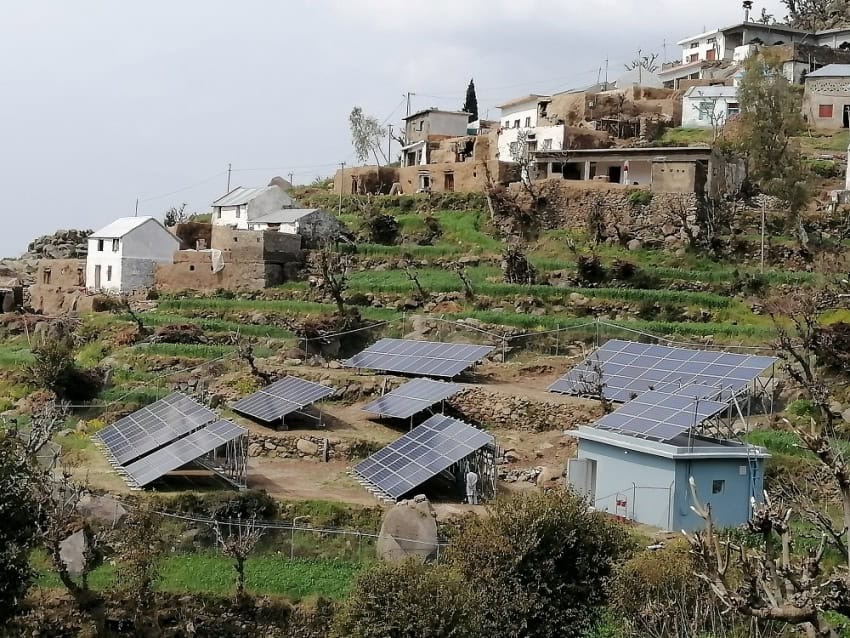Today, countries across the world are celebrating World Environment Day, the theme for which this year is “Time for Nature”. The Day should serve as yet another reminder to us that urgent action is needed for environmental protection in Pakistan. The Global Climate Risk Index has placed Pakistan on the fifth spot on the list of countries most vulnerable to climate change in its annual report for 2020, which was released by the think-tank German Watch. Clearly Mother Nature is not happy with us and the reason behind this is our total apathy to these vital issues.
Our heavy reliance on fossil fuels to meet energy needs, our ever-increasing carbon footprint, and general inattention to pressing environmental issues bode disaster for our future as a progressive country. The over-dependence on fossil fuels as an energy resource is brewing more problems both for the environment and the economy. Globally, energy is the main contributor to climate change as it produces around 60% of greenhouse gases.
Pakistan is committed to taking steps to achieve its Sustainable Development Goal target of affordable and clean energy for all. According to a recent global study conducted by MIT, Stanford University, and the University of California, Pakistan has the potential of producing 92% of its electricity requirements from solar energy, at a rate that’s amongst the highest in the world. Some organizations, such as the Pakistan Poverty Alleviation Fund (PPAF) are ahead of the curve in taking such low-cost renewable energy resources to poor communities. PPAF has been financing the implementation of alternative energy projects since 2003 and has been working in all parts of Pakistan, making a difference at the grassroots level. The projects are implemented in remote and off-grid areas of Pakistan and include the construction of mini- and micro-hydropower plants, solar lighting systems, solar mini-grid systems, and water pumping systems, wind energy projects, and biogas plants.
So far PPAF has supported the implementation of 1,356 renewable energy projects of diverse types and in various capacities through grant and microfinance funding provided by the World Bank, USDA, Italian Agency for Development Cooperation, PPAF own resources, and KfW.
In 2013 PPAF initiated the implementation of 68 solar schemes/subprojects and 5 mini/micro hydropower projects with the funding provided by the Federal Republic of Germany through KfW. These alternate energy projects being implemented in the off-grid villages of the target districts of Khyber Pakhtunkhwa have had a monumental impact on the local environment.
The projects have positively impacted the lives of tens of thousands of individuals. A resident of Bhakkar shared how the installation of a wind energy project by the PPAF in their area has not only reduced air pollution but is also successfully producing excess electricity. Bhakkar is an area that is massively affected by pollution and the installation of renewable energy projects is proving crucial in lowering pollution levels in the area.
Additionally, under the Hydro and Renewable Energy (HRE) Program, PPAF conducted tree plantation activities with the support of partner organizations and community organizations in different locations of Karak, Swabi, Buner, and Lakki Marwat districts of Khyber Pakhtunkhwa. A total of 27,000 tree plants of different types like (Apricot, Ailantus, Bakain, Guava, Lemon, Orange, Pine, Robinia, Sareene, Walnut, etc.) has been handed over to the communities during the month of March 2020.
These efforts could have a significant impact on the overall environment of the country. The effective mobilization of investment and timely implementation has allowed PPAF to ensure maximum benefit for the people and for nature.
No one solution in isolation can address the complex problems associated with the environment. However, sustainable, inclusive planning is the only way forward.
The government, institutions, and policymakers need to work in unison to devise a strategy that ensures the implementation of sustainable options, one of the most effective being faster adoption of renewable energy resources. This shall reduce Pakistan’s dependence on imported fuels by replacing them with indigenous renewable resources that are available in abundance. Other stakeholders, especially the private sector and the public in general, must also play their role in reducing environmental degradation, taking advantage of the many incentive schemes introduced by the government to switch to renewable energy sources.














